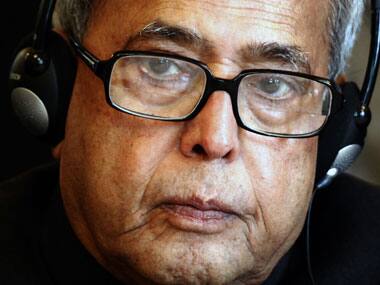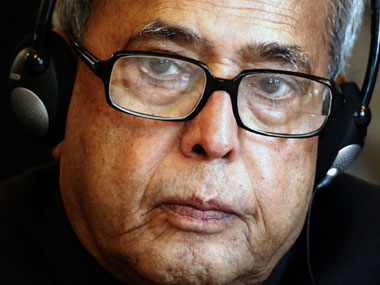Will Budget 2012 become more populist than reformist? Seems increasingly likely, according to many economists and market experts.
Until recently, most experts expected the government to focus on fiscal consolidation (by raising revenues and cutting expenditure) and boosting economic growth.
There were high hopes that Finance Minister Pranab Mukherjee would present on 16 March a reforms-studded Union Budget that would rejuvenate the slumping economy. India’s GDP growth slowed to a more than two-year low of 6.1 percent in the quarter ending December on the back of shrinking investments, a slowdown in exports and uncertainty over the availability of crucial inputs such as coal.
[caption id=“attachment_238690” align=“alignleft” width=“380” caption=“Many controversial measures are likely to remain on hold.Instead, the government could fast-forward spending on social-welfare schemes to win some popularity votes.Reuters”]
 [/caption]
[/caption]
Those hopes seem to have been dashed with the Congress’ drubbing in Uttar Pradesh. With even weaker political influence than before, the UPA might no longer be in a position to introduce any reform that involves raising prices or taxes.
“As things stand now, they won’t be able to bring any reforms . Their own allies will oppose everything,” DH Pai Panandiker, who heads Mumbai-based think-tank RPG Foundation, told Reuters recently.
Many controversial measures are likely to remain on hold. In December, Prime Minister Manmohan Singh had promised to introduce foreign direct investment in multi-brand retail. The policy had been put on ‘pause" in the face of heavy political opposition after it was hastily introduced late last year. Now, the prospect of that policy – along with other key measures– being reintroduced seems even bleaker.
Instead, the government could fast-forward spending on social-welfare schemes to win some popularity votes, although how it will fund that extra spending remains to be seen. Indeed, there is even some buzz of a farm loan waiver to boost consumption.
“The right to food Bill will obviously be expedited , and we may even see a new and renewed focus on the Mahatma Gandhi National Rural Employment Guarantee Act, with stepped-up outlays,” said Akash Prakash, fund manager and CEO of Amansa Capital, in Business Standard. “There has been talk of bringing in new schemes to cover all unorganised sector workers, as well as a desire to more than double public healthcare spend. All are very noble and honourable intentions - but how do you fund this step-up in social sector spend? You cannot fund all these new programmes and yet make no cuts whatsoever in existing subsidies.”
But cutting subsidies may turn into a Herculean task. Hikes in fuel prices (petrol, diesel and cooking gas) and urea, which were broadly expected by the market, are likely to become very difficult to push through given the political foes – and allies – such measures will have to go through.
That leaves raising taxes as the only option for a cash-strapped government. But even that might be difficult in the run-up to general elections in 2014.
Indeed, the government might actually raise the the maximum income tax exemption limit to Rs 2,50,000 from Rs 1,80,000 and hike the tax-saving deduction limit to Rs 2.5 lakh from Rs 1.2 lakh as it attempts to woo middle-class voters.
That leaves just corporate India and super-rich households as tax targets. “..the obvious source of revenue is higher taxes on corporate India and items of luxury consumption. This cannot be good for corporate profitability. Are we going to go back to a 1980s-style Budget of taxing the rich and their consumption to pay for social schemes? That would surely fit in with the socialist mindset of most of the UPA constituents, but it is a negative from the perspective of equity markets,” said Prakash.
Two other expectations seem to be common among experts: an increase in excise duties by about 200 basis points and the inclusion of more services under the service tax net.
At any rate, don’t hold your breath for a stunningly ‘big-bang’ Budget. Chances are, the government no longer has any appetite for that.
)